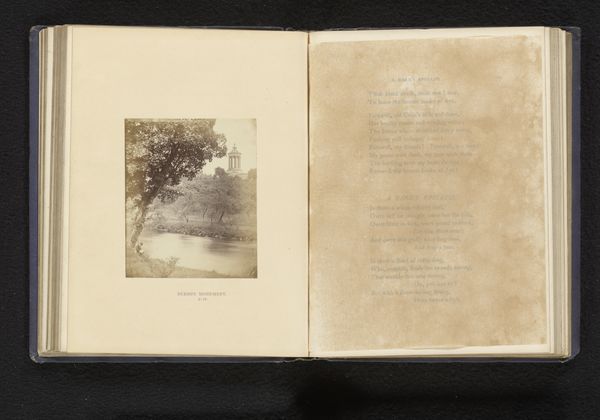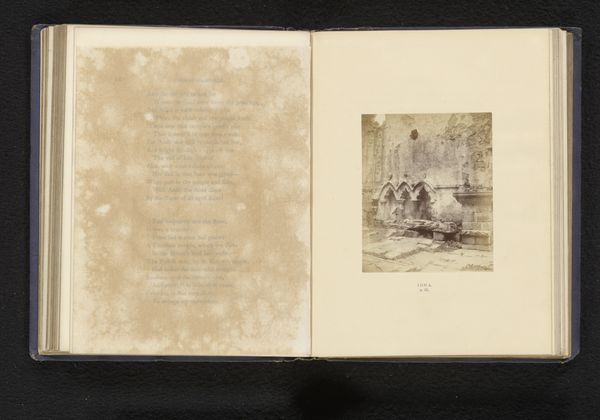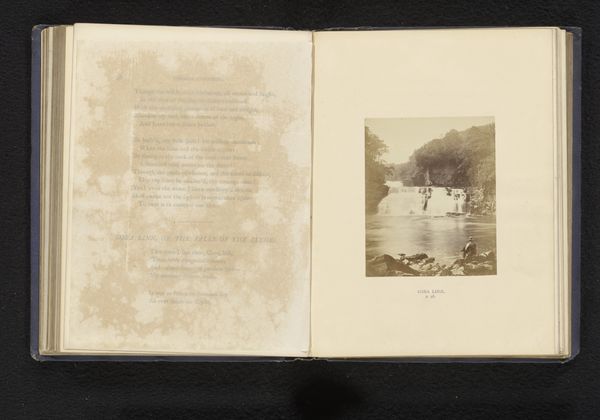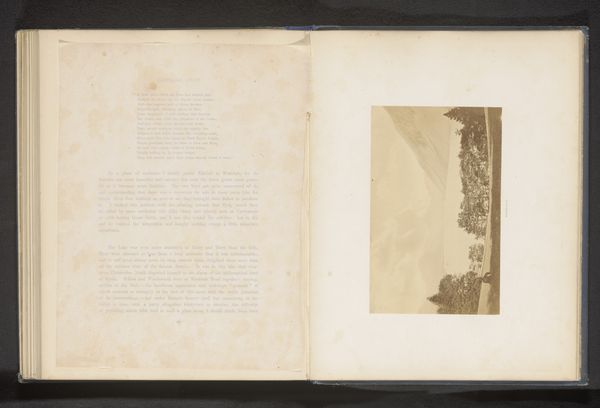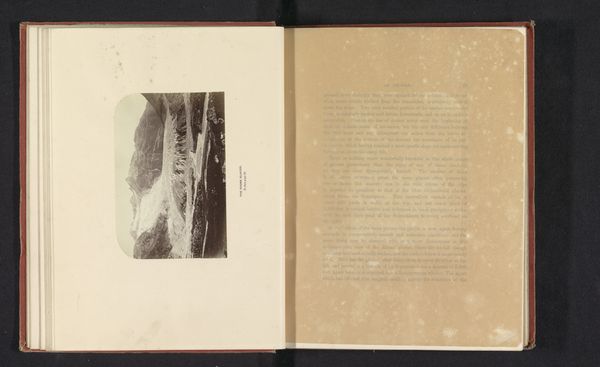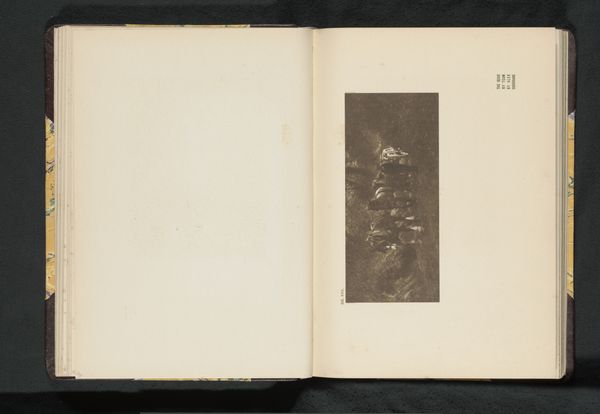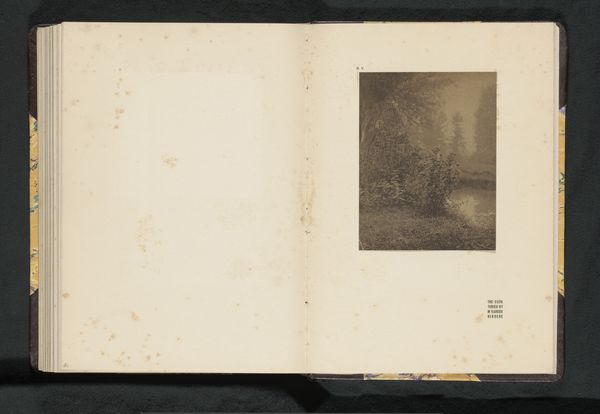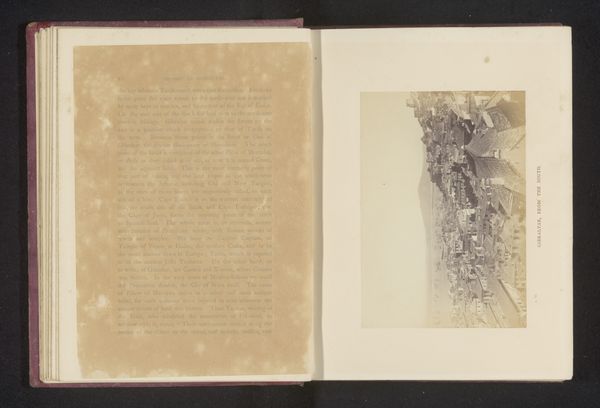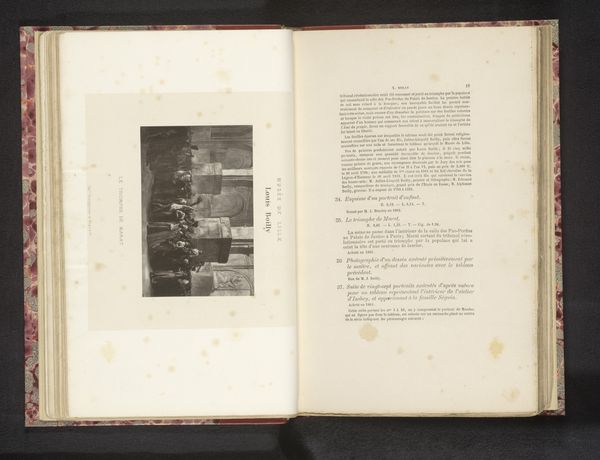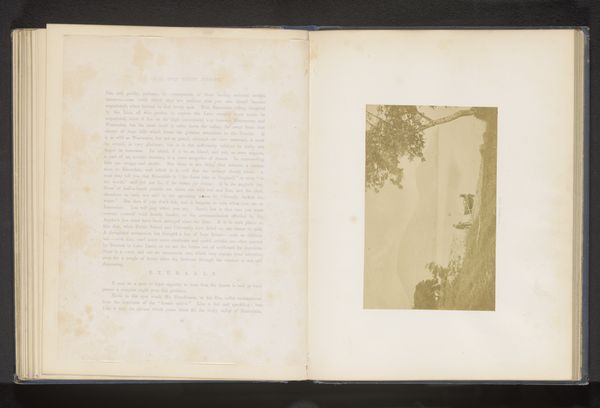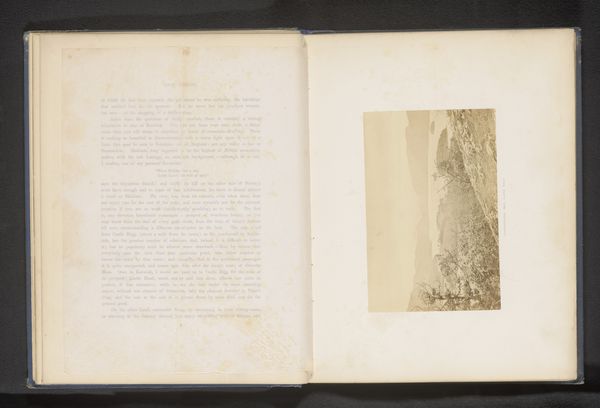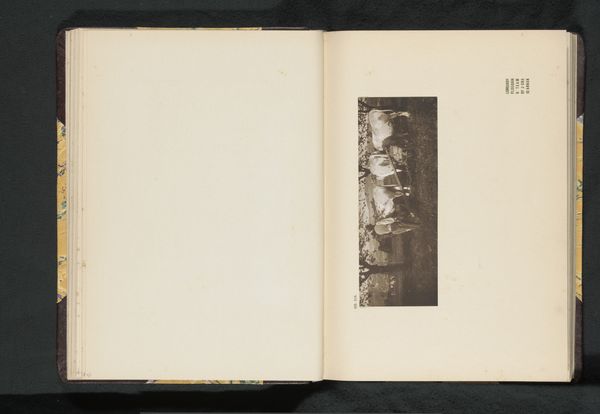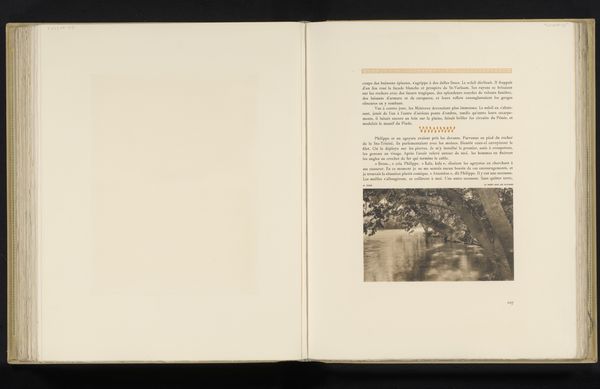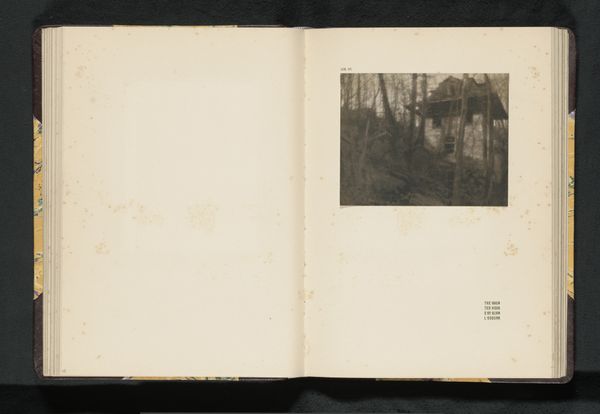
print, photography, albumen-print
# print
#
landscape
#
river
#
photography
#
albumen-print
Dimensions: height 106 mm, width 83 mm
Copyright: Rijks Museum: Open Domain
Curator: Here we have Stephen Thompson's "Gezicht op de rivier Devon," or "View of the River Devon," a striking albumen print from before 1868, displayed within what seems to be a bound album. Editor: It has a rather melancholic feel, wouldn’t you say? The sepia tones amplify a sense of bygone days and, in contrast with the natural scene depicted, a slightly constrained feel due to its presentation within the album. Curator: Absolutely. This image being an albumen print tells us a great deal. The albumen process, requiring egg whites to bind the photographic chemicals to the paper, speaks volumes about the labor involved. Think about the scale of production of such albumen prints in that era; who gathered and prepared the egg whites? How did that impact the artistic process and democratize, or perhaps not, access to photography for different social classes? Editor: The choice of subject, a river, also has deep cultural implications. Rivers often symbolize the passage of time, constant change, and even cleansing. This photograph, therefore, can be viewed through the lens of 19th-century societal shifts, industrial impact on the natural landscape, and humanity’s relationship to nature and spirituality. The image also is cropped to show the height and power of nature contrasted with how little space the label for the image occupies. Curator: Good point. This photo is part of an entire photographic object–bound into an album. So not just the individual photograph but the album itself serves as object of both practical use and a mode of dissemination for this artist's work. Also, how did it circulate, who saw it and how was its materiality of use tied to how audiences interpreted it? Editor: Exactly! Placing it within an album format points toward broader conversations about the documentation and presentation of visual culture and the cultural values that are then associated with the process of its construction and preservation, reflecting on our modern obsession with collecting and organizing. This image shows a scene divorced from us, a moment captured and passed on. Curator: Well, analyzing this work together certainly emphasizes how closely interconnected the themes of material culture, nature, and social change truly are! Editor: Precisely! Seeing how photography like this served to reflect, comment, and subtly agitate shifts our perceptions both of art and its essential role.
Comments
No comments
Be the first to comment and join the conversation on the ultimate creative platform.
